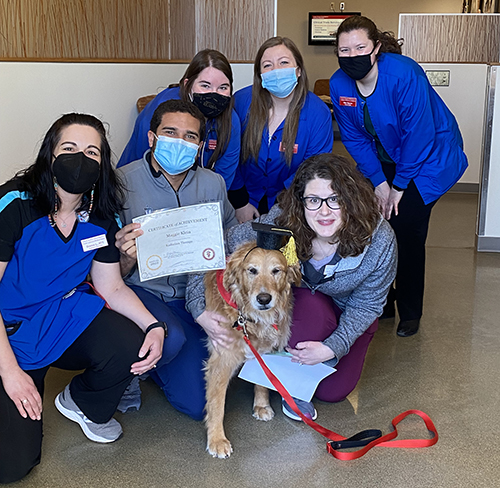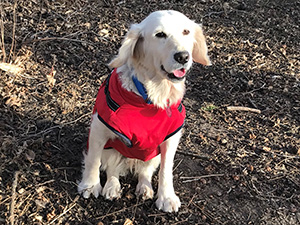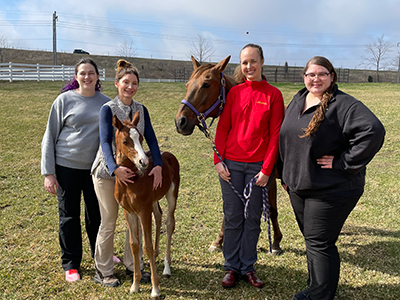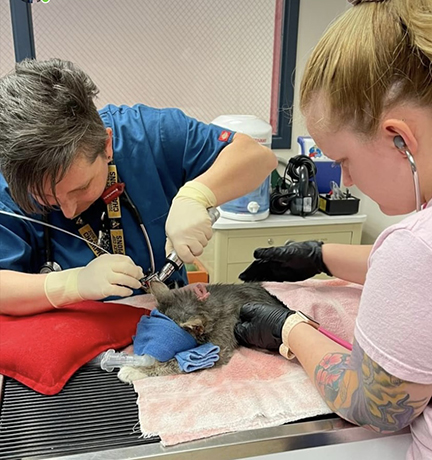Change of Pace
Hooked Up

On her first visit to the Hixson-Lied Small Animal Hospital with her dog Maggie, Julie Klein was attempting to complete paperwork at the reception desk. Maggie had other thoughts.
I had Maggie on a leash and found it difficult to hold onto her and complete paperwork while she tried to greet all the other patients and their parents," Klein said. “I went looking for a hook where I could attach her leash, but there weren't any.”
Thanks to Klein, the problem has been solved. She donated funds to purchase and install a series of dog hooks Hixson-Lied clients can utilize when they are busy with paperwork. The hooks have been attached to the base wall of the reception desk at five client-facing stations.
A New Home

You could see it in Dr. Rod Bagley’s eyes; he wanted to care for Doree. At the time, Doree couldn’t stand or walk. She could barely lift her head. Doree was malnourished. Yet Bagley saw something in the golden retriever who had spent her four years delivering puppies at a USDA licensed breeder in Iowa.
In November 2021, a federal court judge ordered the surrender and removal of more than 500 dogs and puppies from a breeder to the Animal Rescue League of Des Moines. One of those dogs was Doree. Under the care of the Hixson-Lied Small Animal Hospital staff Doree slowly worked her way back to health. One of the veterinarians who cared for Doree was Bagley, a neurologist by training who supports the Canine Rehabilitation Center. Bagley now cares for Doree full time, because he adopted her.
Working Together

Difficult cases in the Lloyd Veterinary Medical Center require collaboration and cooperation among several individuals. One such case recently came about when a filly was diagnosed soon after birth with severe neonatal maladjustment syndrome causing the horse to suffer from severe seizures and a suspected case of sepsis. There was only one possible solution to the filly’s issues, and it required collaboration and cooperation across both the Hixson-Lied Small Animal Hospital and the Large Animal Hospital.
“This type of procedure requires not only a dedicated team of caregivers but a dedicated owner, because there are a lot of unknowns, a financial commitment and the outcome is often hard to predict for a while,” said Dr. Jamie Kopper, assistant professor of large animal emergency and critical care.

